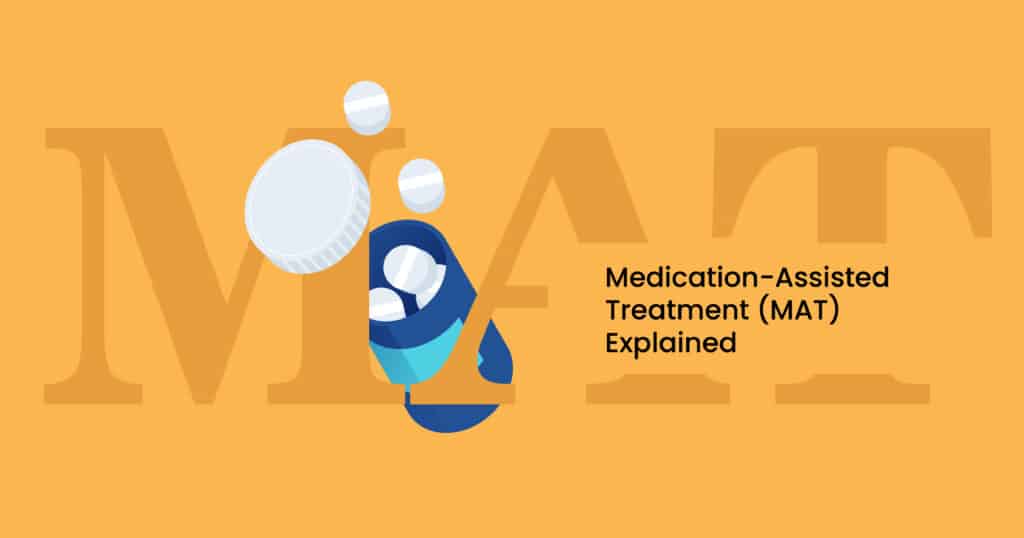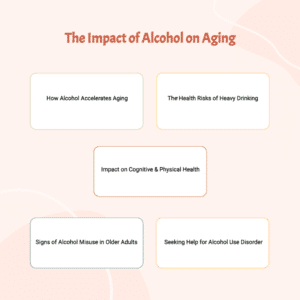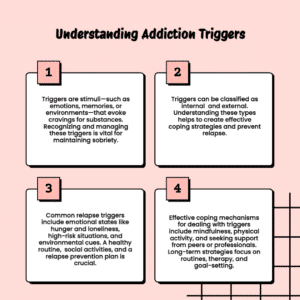
Medication-Assisted Treatment (MAT) is an evidence-based approach used to support individuals in overcoming addiction, particularly for opioid and alcohol dependence. MAT combines the use of medications with behavioral therapies to address the physical, psychological, and physiological aspects of addiction. This comprehensive guide will explain how MAT works, the benefits it offers, the medications commonly used, and why combining medication with therapy is crucial for successful recovery.
How Does Medication-Assisted Treatment (MAT) Work?
MAT works by utilizing specific medications to address the physical and psychological effects of addiction. These medications help reduce cravings, manage withdrawal symptoms, and normalize brain chemistry, allowing individuals to focus on their recovery without the overwhelming urge to use drugs or alcohol.
Benefits of Medication-Assisted Treatment (MAT)
Craving Reduction
One of the primary benefits of MAT is its ability to reduce cravings for drugs or alcohol. Medications used in MAT target the areas of the brain affected by addiction, helping to alleviate the intense desire for substance use.
Withdrawal Symptom Management
MAT medications are effective in managing withdrawal symptoms, which can be uncomfortable and sometimes dangerous. By easing the physical and psychological discomfort associated with withdrawal, MAT increases the likelihood of individuals sticking to their recovery plan.
Normalization of Brain Chemistry
Prolonged substance abuse alters brain chemistry, making it difficult for individuals to experience pleasure or control their impulses. Medications used in MAT help restore the balance of neurotransmitters in the brain, allowing for improved mood regulation and decision-making.
Lower Risk of Relapse and Overdose
MAT has been shown to reduce the risk of relapse and overdose in individuals with opioid or alcohol dependence. By reducing cravings and managing withdrawal symptoms, MAT provides individuals with a better chance of maintaining sobriety and preventing potentially fatal overdoses.
Medications Used in Medication-Assisted Treatment (MAT)
Methadone
Methadone is a long-acting opioid agonist used in MAT for opioid dependence. It helps alleviate withdrawal symptoms, reduces cravings, and blocks the euphoric effects of opioids. Methadone is administered daily under medical supervision.
Buprenorphine
Buprenorphine is a partial opioid agonist used to treat opioid addiction. It helps reduce cravings and withdrawal symptoms while blocking the effects of other opioids. Buprenorphine can be prescribed in different formulations, including a sublingual tablet, a dissolvable film, or an implant placed under the skin.
Naltrexone
Naltrexone is an opioid antagonist used in MAT for both opioid and alcohol dependence. It blocks the effects of opioids and reduces alcohol cravings. Naltrexone is available as a monthly injection or in tablet form.
The Importance of Combining Medication with Therapy
While medications play a crucial role in MAT, it is essential to combine them with behavioral therapies for optimal outcomes. Therapy helps individuals address the psychological and emotional factors contributing to addiction, develop coping skills, and adopt healthier behaviors.
Cognitive-Behavioral Therapy (CBT)
CBT focuses on identifying and changing negative thought patterns and behaviors associated with addiction. It helps individuals develop new coping strategies, strengthen their motivation for recovery, and build resilience against relapse triggers.
Motivational Interviewing (MI)
MI is a client-centered therapy that aims to increase intrinsic motivation for change. It helps individuals explore their ambivalence towards recovery, build self-efficacy, and foster a sense of ownership and commitment to their treatment goals.
Group Therapy
Group therapy provides a supportive environment where individuals can share their experiences, challenges, and successes with others going through similar journeys. It offers peer support, validation, and a sense of belonging, which can be instrumental in maintaining long-term recovery.
Frequently Asked Questions about Medication-Assisted Treatment (MAT)
Will I become addicted to the medications used in MAT?
The medications used in MAT are carefully prescribed and managed by healthcare professionals. When taken as prescribed, the risk of addiction to these medications is minimal. They are designed to help individuals overcome addiction and rebuild their lives.
Can MAT be used for long-term maintenance?
MAT can be utilized as a long-term maintenance strategy, especially for individuals with chronic addiction or who have experienced multiple relapses. The duration of MAT varies depending on individual needs and progress in recovery.
Is MAT effective for all types of substance addiction?
MAT is primarily used for opioid and alcohol addiction. However, research is ongoing to explore the effectiveness of MAT for other substances.
Conclusion: Overcoming Addiction with Medication-Assisted Treatment (MAT)
Medication-Assisted Treatment (MAT) has proven to be an effective approach in supporting individuals in their journey towards recovery. By reducing cravings, managing withdrawal symptoms, and normalizing brain chemistry, MAT provides a solid foundation for successful, long-term sobriety. When combined with therapy, MAT addresses both the physical and psychological aspects of addiction, giving individuals the tools they need to overcome substance dependence and reclaim their lives.








